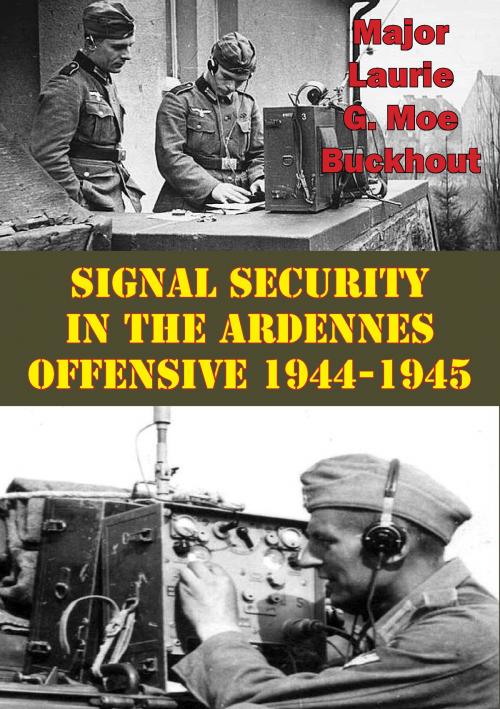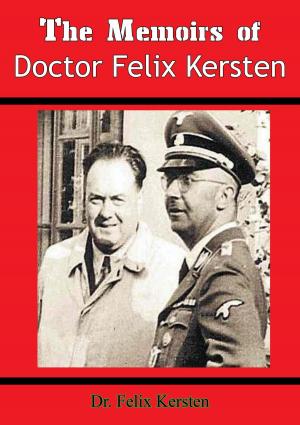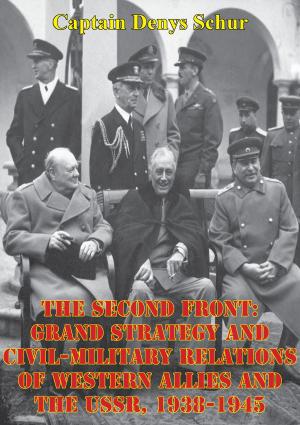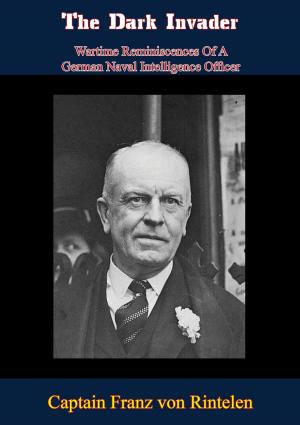Signal Security In The Ardennes Offensive 1944-1945
Nonfiction, History, Germany, European General, Military, United States| Author: | Major Laurie G. Moe Buckhout | ISBN: | 9781786250292 |
| Publisher: | Lucknow Books | Publication: | November 6, 2015 |
| Imprint: | Lucknow Books | Language: | English |
| Author: | Major Laurie G. Moe Buckhout |
| ISBN: | 9781786250292 |
| Publisher: | Lucknow Books |
| Publication: | November 6, 2015 |
| Imprint: | Lucknow Books |
| Language: | English |
This thesis investigates the significance, theory and practice of tactical signal security (SIGSEC) during the Ardennes Offensive of 1944-1945. The work includes a brief introduction to the offensive and to the history of SIGSEC, and examines how the American and German armies safeguarded communications from the enemy. Inherent in this study was an investigation of actions taken by these armies to exploit their adversary’s SIGSEC and the processing and exploitation of the signal intelligence (SIGINT) they obtained.
The study concludes that both armies had similar equipment, basic procedures, and training in the areas of communications, SIGSEC and SIGINT, and suffered similar deficiencies in these areas. Analysis, however, revealed a deep disparity concerning their use and importance. The Americans’ near complete lack of regard for tactical SIGINT was a major factor contributing to the success of Hitler’s deception. The U.S. Army relied heavily upon intelligence gleaned from the German ULTRA code, and American intelligence officers were untrained in the use of tactical signal intelligence, mainly using it to validate operational plans. This attitude is reflected also in the American emphasis on SIGSEC. The Germans, however, were more experienced in SIGINT and SIGSEC, and formed a structure and doctrine that focused on immediately influencing tactical operations.
This thesis investigates the significance, theory and practice of tactical signal security (SIGSEC) during the Ardennes Offensive of 1944-1945. The work includes a brief introduction to the offensive and to the history of SIGSEC, and examines how the American and German armies safeguarded communications from the enemy. Inherent in this study was an investigation of actions taken by these armies to exploit their adversary’s SIGSEC and the processing and exploitation of the signal intelligence (SIGINT) they obtained.
The study concludes that both armies had similar equipment, basic procedures, and training in the areas of communications, SIGSEC and SIGINT, and suffered similar deficiencies in these areas. Analysis, however, revealed a deep disparity concerning their use and importance. The Americans’ near complete lack of regard for tactical SIGINT was a major factor contributing to the success of Hitler’s deception. The U.S. Army relied heavily upon intelligence gleaned from the German ULTRA code, and American intelligence officers were untrained in the use of tactical signal intelligence, mainly using it to validate operational plans. This attitude is reflected also in the American emphasis on SIGSEC. The Germans, however, were more experienced in SIGINT and SIGSEC, and formed a structure and doctrine that focused on immediately influencing tactical operations.




![Cover of the book My Experiences In The World War – Vol. II [Illustrated Edition] by Major Laurie G. Moe Buckhout](https://www.kuoky.com/images/2014/june/300x300/9781782891284-xHoK_300x.jpg)
![Cover of the book Tragedy At Honda [Illustrated Edition] by Major Laurie G. Moe Buckhout](https://www.kuoky.com/images/2015/november/300x300/9781786255440-qRl4_300x.jpg)




![Cover of the book The Tiger Triumphs - The Story Of Three Great Divisions In Italy [Illustrated Edition] by Major Laurie G. Moe Buckhout](https://www.kuoky.com/images/2014/august/300x300/9781782894742-ngfJ_300x.jpg)


![Cover of the book The AAF In Northwest Africa [Illustrated Edition] by Major Laurie G. Moe Buckhout](https://www.kuoky.com/images/2014/august/300x300/9781782894667-I1uq_300x.jpg)

![Cover of the book The Curtain Of Steel [Illustrated Edition] by Major Laurie G. Moe Buckhout](https://www.kuoky.com/images/2015/november/300x300/9781786255389-HRfc_300x.jpg)